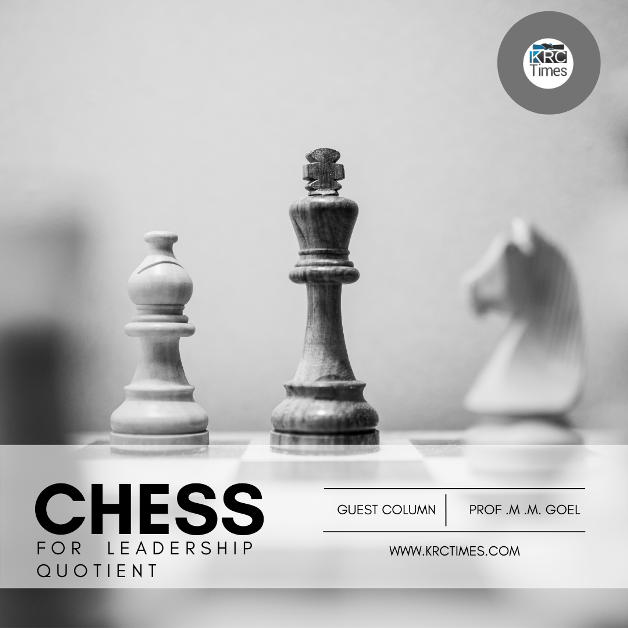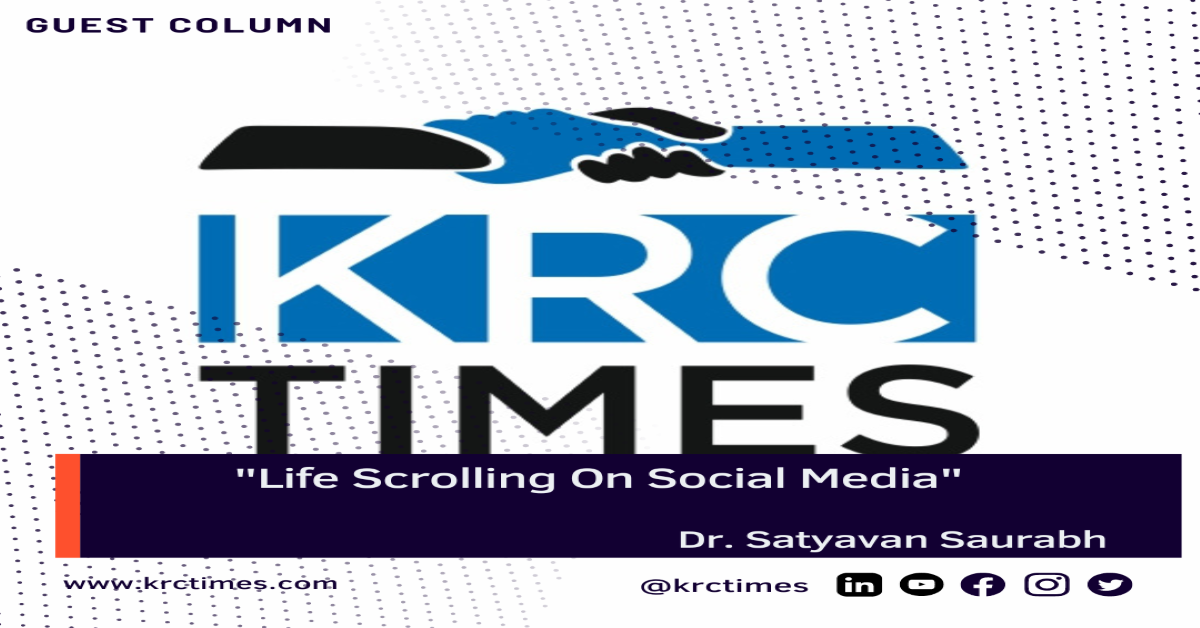Life is like a game of chess. Every move/decision we make can either bring us an advantage or a disadvantage
 Dr. M. M. Goel
Dr. M. M. Goel

To develop a leadership quotient (LQ), we have to play chess as an educational tool along with the spiritual quotient (SQ) with inputs from Gita and Anu-Gita. Chess teaches us to make the right move (morality, opulence victory, and empowerment) from the very beginning, without emotional guidance to our actions, make sacrifices, take action and attack the problem at hand in every walk of life. Chess is the game of kings to be learnt for developing LQ for creating a significant impact on the people at large. It is pertinent to mention that the intelligence quotient (IQ) has become obsolete in the present era of artificial intelligence (AI) possessed by smartphones. The human being is superior to the machines (smartphones) with an emotional quotient (EQ) and SQ which are essential for LQ.
It has been revealed by English history that King Canute believed to be the first English king who played chess in 1027, ordered the execution of the Earl Ulf, following an incident at the chessboard.
Life is like a game of chess. Every move/decision we make can either bring us an advantage or a disadvantage. Even acting upon our wisest and planned decision can bring a negative outcome, pieces must keep moving though. Today we know that chess originated in India’s Gupta Empire (600CE). Many people believe that chess was played by the ancient Egyptians. But, the game we think of as chess and what the Egyptians used to play are completely different. It only takes a few hours to learn the rules properly. Chess is a unique combination of warfare, art, science, and sport making it enjoyable for people of all ages, socioeconomic backgrounds, and youth to develop LQ in personal and professional life.
The list of uses of playing chess includes bringing people together, and teaching the technique to win and lose in a spirit of sportsmanship. Chess helps to realize the consequences of our actions, can help us focus, develop creativity, builds confidence, and develops problem-solving skills. Chess gets its appeal to the human psyche because of its logic, reasoning, aesthetic, adventurous, and empowering elements. It is considered a creative quest with endless opportunities, as an escape from the ills of life. The devotees of the game of chess enjoy it like love and music.
There are six different types of chess pieces. Each side starts with 16 pieces: eight pawns, two bishops, two knights, two rooks, one queen, and one king. The queen is the most powerful piece in the game of chess, able to move any number of squares vertically, horizontally, or diagonally, combining the power of the rook and bishop. Each player starts the game with one queen, placed in the middle of the first rank next to the king.
To my mind, the most important quality of leadership is the ability to build a team to focus on a common endeavour and to support in practical ways. To be a leader in all walks of life, particularly in politics, one should throw the manuals away as leadership can involve war, but chess is not only about war. No one will follow in war if we know that we will get a jerk in real life. To walk the walk as well as talk the talk as a leader, one has to listen to the people around as a good listener more than a good speaker as a quality of leadership.
We can certainly develop LQ with inputs from Gita and Anu-Gita (SQ) with chess (IQ) in the spirit of sportsmanship without bothering to win and lose the game and work without worries (www) more important than the www of information technology. Sports such as chess are necessary for the holistic development of a personality as a needo-lifestyle. Be enthusiastic to play chess!

The writer is the founder Needonomics School of Thought and has been Vice-Chancellor in different public and private universities in India.
Advertisement | KRC Foundation

To know more, visit: https://bit.ly/3KVFnRq





